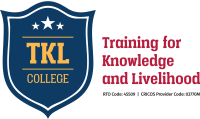
This role has a high level of AI exposure. While some human skills are required, many tasks could be automated or replaced by new technology.
Explore all careersTax Agents help clients with tax returns, GST, and superannuation, offering advice on structuring and taxation while registered with the TPG.
Get qualified to work as a Tax Agent with a course recognised across Australia. Speak to a training provider to learn more.








































The average weekly earnings for a full-time Tax Agent is currently $1,600 per week ($83,200 annually). This is a median figure for full-time employees and should be considered a guide only. Self-employed Tax Agents often earn much higher salaries.
 Courses.com.au Team
Courses.com.au Team
There are approximately 130,000 qualified accountants working in Australia right now, many of these are registered Tax Agents. There are job opportunities for Tax Agents in all parts of the country, especially in remote and rural locations. Tax Agents are employed by large corporations, government departments, and accounting firms, but many are self-employed or work part-time for smaller tax agencies. Becoming a Tax Agent is a great career choice for anyone wanting flexible hours and the opportunity to work remotely.
Source: Australian Institute of Public Accountants, National Careers Institute, and Labour Market Insights 2024.
 Courses.com.au Team
Courses.com.au Team
Tax Agents in Australia must be registered with the Tax Practitioner’s Board (TPB) and have appropriate qualifications and professional experience. The minimum standards for TPB registration include: 1. Completing a TPB-approved course that includes modules in Australian Tax Law and Commercial Law. Suitable qualifications include the Diploma of Accounting, Advanced Diploma of Accounting, Bachelor of Accounting, and Bachelor of Business (Accounting). 2. Completing 12-24 months of work experience under the supervision of a registered Tax Agent or accountant. 3. Holding professional indemnity insurance.
 Courses.com.au Team
Courses.com.au Team
Browse occupations related to Tax Agent



For individuals in Richmond seeking to pursue a rewarding career in the financial sector, Tax Agent courses in Richmond provide an excellent pathway to achieving your professional goals. By enrolling in one of these courses, you not only gain the essential knowledge needed to navigate the complexities of taxation but also open doors to various job opportunities within the finance and accounting fields. Those looking to further their education may also explore related finance courses that complement your understanding of the industry.
Richmond, situated in the picturesque Greater Western Sydney region, offers a plethora of accredited Training Providers, ensuring that students receive high-quality education recognised by the industry. Completing a Tax Agent course equips you with skills related to tax compliance, client advisory, and financial regulations. This reflects positively on job roles like Tax Accountants and Certified Practicing Accountants, which are vital to various businesses in and around the area.
Aside from becoming a Tax Agent, Richmond's community offers varied career possibilities in related fields. Career paths such as Accounts Clerks, Bookkeepers, and even Auditors are available for those with a background in tax and finance. The versatility in the skill set obtained from Tax Agent courses ensures you are well-prepared for the evolving job market.
Taking the leap into Tax Agent courses in Richmond not only prepares you for a vital role within the financial ecosystem but also positions you for future advancements like becoming a Tax Manager or a Chief Financial Officer. With the right education, networking opportunities, and practical experience from local training providers, Richmond can be the launchpad for your successful career in tax and finance. Don't miss the opportunity to shape your future with comprehensive training that supports your ambitions.